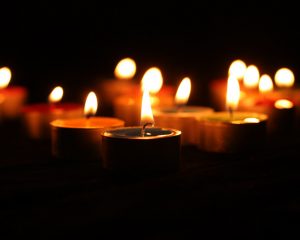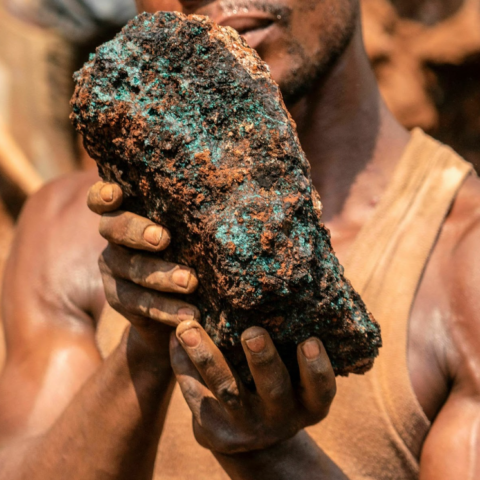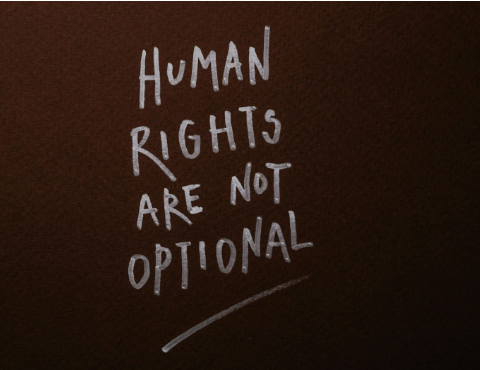By: Yuliya Bila

How many international parties must agree on a piece of history for it to be considered true?
Such a question contains an inherent flaw in reasoning- the event either took place or it did not. Official diplomatic recognition does not make the past any more true, just as the lack of said acknowledgment cannot erase history.
This notion can be corroborated by examining the case of the Armenian Genocide and the Ukrainian Holodomor. Consider the modern-day Armenians whose ancestors were rounded up and slaughtered in 1915 or the Ukrainians whose grandparents managed to live through the artificial famine of 1932. The lack of official recognition of their persecution does not erase the wounds of their people. Pain and resentment are persistent irritants; they transcend politics, overcome the comfort of modern conveniences, and manifest themselves in late night stories embedded in the collective memory of entire generations.
In present-day Armenia, these stories include accounts of brutal death marches orchestrated by the triumvirate of the Young Turks. They tell of the forced labor camps, the random mass killings, the weak and the strong alike perishing of thirst in the Syrian dessert. On the other side of the Black Sea, the stories change, though their tone remains identical. They describe the times of Bolshevik soldiers seizing livestock, working the peasants to death, and hauling away truckloads of wheat while entire villages starved to death. The stories typically culminate with an estimate of casualties— the historically accepted figures converge around one and a half million Armenians and seven million Ukrainians—men, women and children who perished as part of the homogenizing agendas of their respective ultra-nationalist rulers.
Unfortunately, most people do not think to consider the persecution of these two populations. This does not suggest an indifference to the plight of a minority group; after all, virtually every educated global citizen, regardless of his or her religious affiliation, trembles in horror at the thought of six million Jews perishing in concentration camps. Rather, this general lack of awareness suggests a tell-tale relationship between official recognition of a massive atrocity and its subsequent treatment during compulsory education and, by extension, public dialogue.
For example, Nazi Germany lost World War II, underwent occupation and division, and was forced to admit its dark past. The Ottoman Empire and the USSR, on the other hand, benefitted from the lack of a similar spotlight on their dirtied hands. For many years, they allowed themselves the luxury of complete denial that any such targeted persecution occurred in the first place and focused their energy on covering up their tracks. In fact, because of their position of relative power in the international system, their modern-day successor states, Turkey and Russia, are allowed to continue the policy of treating the loss of millions of lives as antiquated and irrelevant. Though outright denial is no longer acceptable in the face of overwhelming historical evidence, the governments of these two countries dismiss the “allegations” as stemming from their neighbors’ desires to stir up trouble and tarnish their image in the international community.
Despite continuing efforts by Russia and Turkey, the reputations of these two states have not remained as clean as they would have preferred. Turkey’s ambitions to join the EU and thus the ranks of the industrialized west are hampered by its stained human rights record and refusal to acknowledge its persecution of minority groups as well as the legitimacy of the entire country of Cyprus. Meanwhile, Russia, amid a host of other international disputes, has been implicated in release of WikiLeaks cables revealing the threatening of Azerbaijan and admonishment of Israel with regard to the diplomatic recognition of the Bolshevik-induced famine in Ukraine.
As a result of Turkey and Russia’s firm stances on the issues, few countries have officially recognized the Armenian Genocide and the Ukrainian Holodomor. Most discourse pertaining to these atrocities occurs at the upper academic level among specialized elite while the vast majority of the population remains unaware that Hitler’s “final solution” was not the only such case of mass extermination in Europe.
While political considerations, such as the importance of the US-Turkey relationship, dominate national policy and prevent these issues from being addressed in the public domain, the wounded populations will continue clamoring for acknowledgment and building up their cause by vilifying the descendants of the perpetrators. Recognizing and addressing the wrongs of the past, whether through historical education or public discourse, remains the only viable option to taming the deep-seated resentment that has remained for generations in the social consciousness of the victimized peoples. Unfortunately, there is no telling when the world will leave behind the politics and come to terms with the past; only then can the wounds begin to heal.
For a startling infographic enumerating other instances of mass extermination besides those mentioned in this article, click here to see a compilation by Dr. Jim Woods at California State University, Long Beach.

